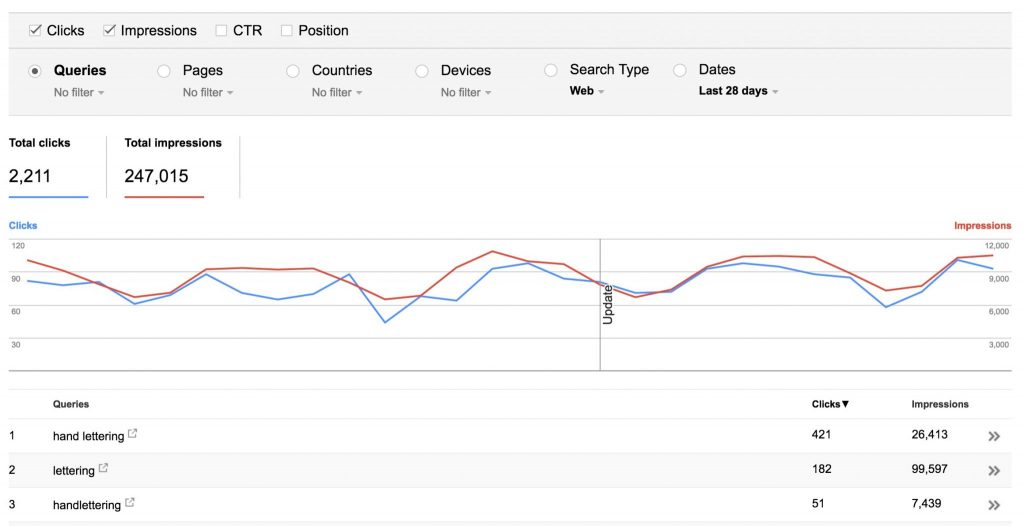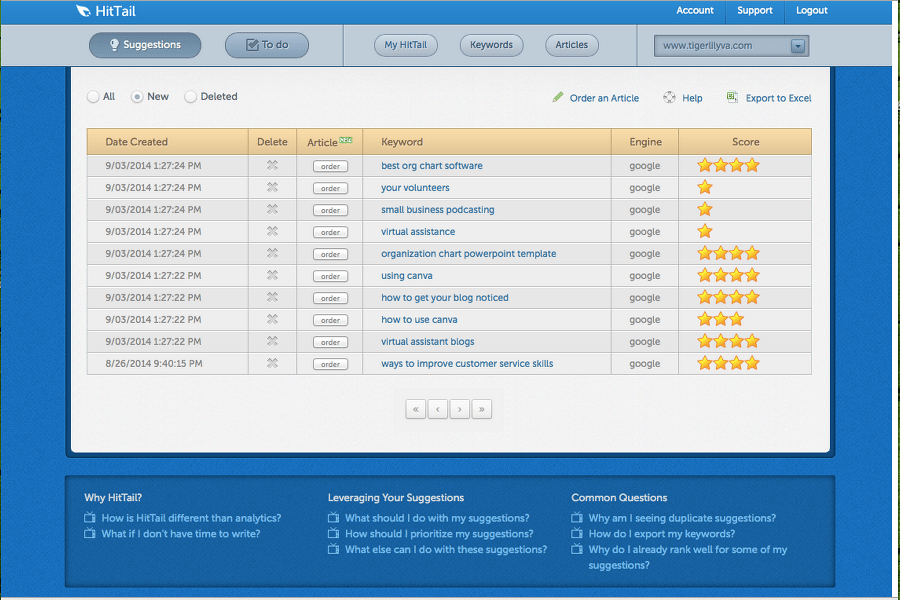Running an E-commerce store can be difficult, but targeting keywords for E-commerce SEO on that store doesn’t have to be. You can just pick your search terms and random and hope that those are the ones that are getting the most search traffic, but when it comes to ECommerce, you really don’t want to be wrong and lose half the traffic.
Some people might say – I make what I make or I sell what I sell and if people aren’t looking for it than they won’t find it. But the truth is a lot of people might be looking for what you’re selling and might just be using different words (even the incorrect words.) So it’s good to spy on the traffic that your competitors are getting, look at raw data about what people search the most – and balance your keyword strategy with that. You can use these E-commerce SEO Keyword Research Tools to get started:
1. Google’s Keyword Planner Tool
If you haven’t tried this yet, do it. Google is highly incentivized for finding you the right keywords to bid on through its Adwords program, and the tools to help you find lucrative, low competition keywords is excellent.
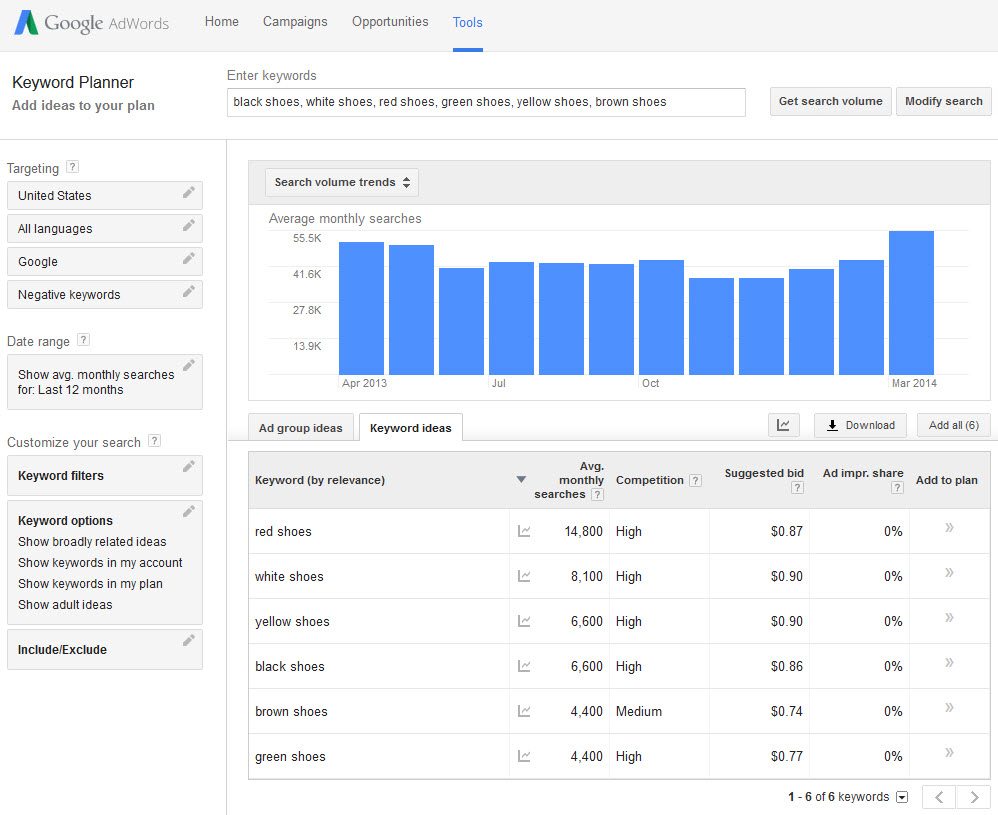
2. Ahrefs – Keywords Explorer
Find out what keywords you are already getting traffic for, and how much competition you’re looking at. Sometimes aHrefs will show me that I’m getting a lot of traffic for something, that I’m not particularly interested in getting more traffic in, but could pivot into new content or a new approach. Ahrefs ‘Keyword Difficulty’ tool and the ability to quickly glance at Volume or sort by ‘Cost Per Click’ are really amazing ways to get an idea about what people are searching for and what you might be able to break into and still get the search volume to make it worth it.
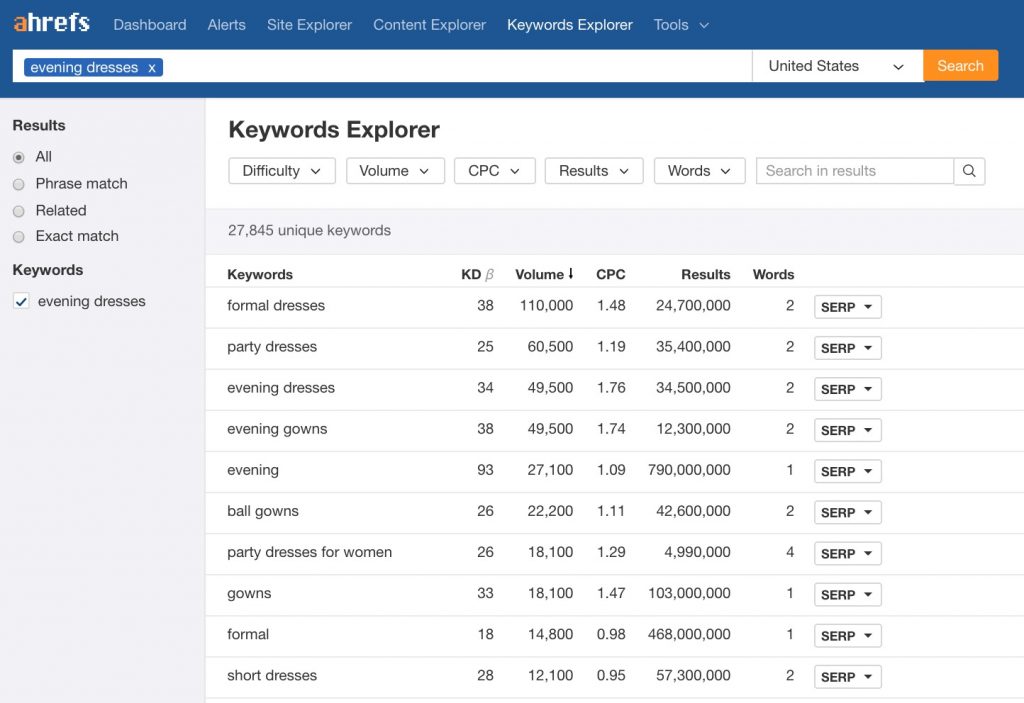
3. Search Console – Clicks vs. Impressions
Amplify what’s already working for you by looking at search console and checking out what you may have alot of impressions for, but maybe not as many clicks.
This is a great way to be aware of how people are getting into your site, and monitor your site after you make changes to make sure that your search engine ranking health is as good as it can be. For instance if you’re trying to get ranked for ‘warm winter gloves,’ but you see that hats are the terms bringing in the most traffic off of search but your selection of hats is much slimmer, you would take that information and focus on internally and externally linking more to the gloves pages, and create more content around the subject of gloves.
Seeing where you’re doing well is a great first step though.
4. HitTail – Quick Keyword Suggestions and Scores + Order Articles
Don’t feel like doing the work that some of these other tools entail? HitTail is intended to make it dead simple to identify keyword opportunities and also allows you to quickly order articles if you’d like them to write the posts for you.
5. SEMRush – Great Competitive Analysis
SEMRush is great for competitive analysis, looking for what keywords your competitor is targeting and amping up your efforts regarding those, or going for other terms.
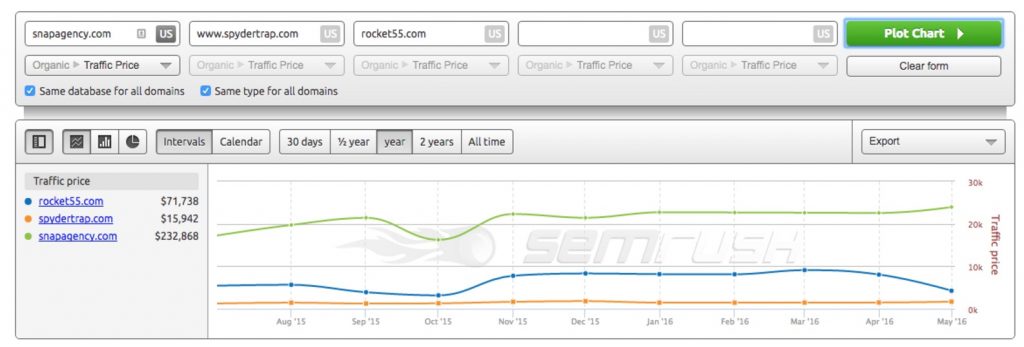
- Once you enter the URLs you can choose what data you want to look at. Most of the time you will want Traffic for either Organic or Paid, Traffic Price for Organic ( this is if you were to bid on the sites top keywords for SEO).
- You are able to download this report into excel and make it into a chart. Always look over one year or all time. Better benchmarking.

